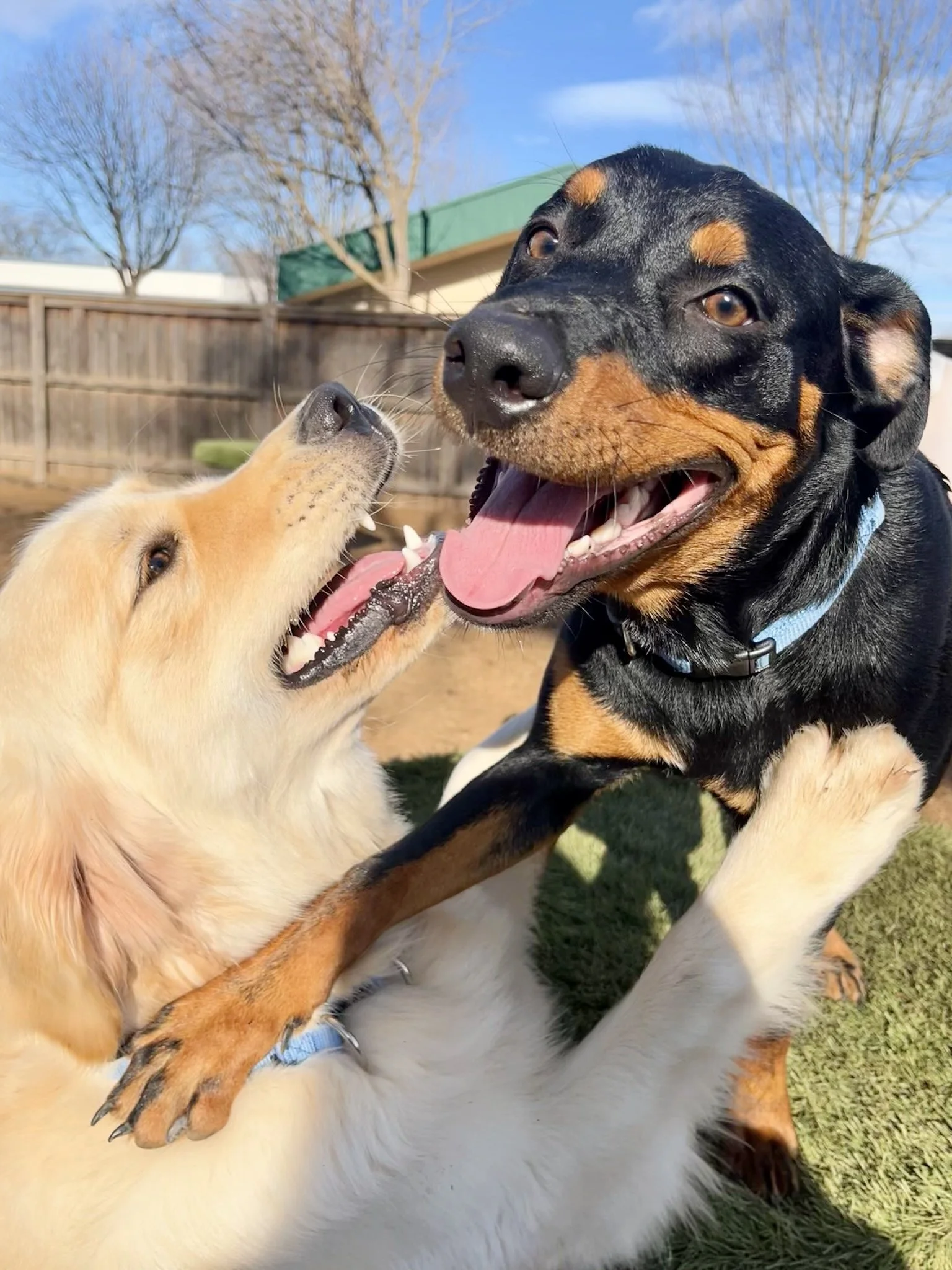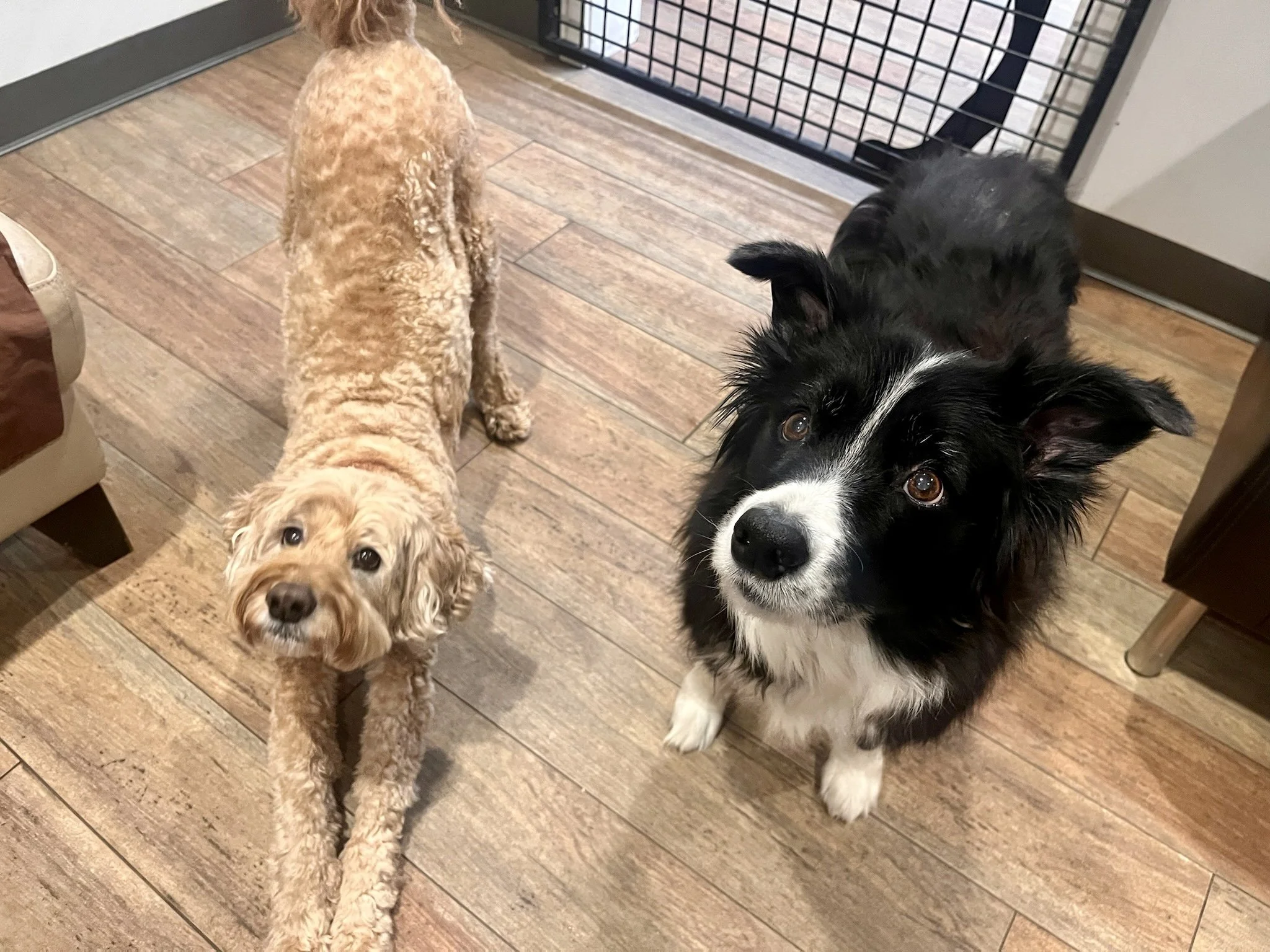
Resources
Check out our favorite dog training resources below.
-

All About Puppies
Congratulations on your new uppy! Click here for articles and other resources to help with getting our puppy off to a perfect headstart!
-

Your Adolescent Dog
Adolescence is a distinct developmental period for dog, typically occurring between 6-18 months old. It can be a frustrating tome for both dog and there people! But don’t worry… with good information and training support, you and your dog will survive it. We can help!
-

Senior Dog Challenges and Needs
What should we know about the services you provide? Better descriptions result in more sales.
Training Needs and Challenges
Alphabetical Listing
Aggression (including Leash Reactivity)
Book: Fight! A Practical Guide to the Treatment of Dog-Dog Aggression, by Jean Donaldson.
Book: Feisty Fido: Help for the Leash-Reactive Dog, by Patricia McConnell, Ph. D. and Karen London, Ph.D.
See “Muzzle Training” below
Anxiety and Fear
Book: The Cautious Canine – How to Help Dogs Conquer Their Fears, by Patricia McConnell, PhD.
Barking
Online Booklet: Barking: What’s the Barking Deal?
Digging
Husbandry
Multiple Dogs
Book: Feeling Outnumbered? How to Manage and Enjoy Your Multi-Dog Household, by Patricia McConnell, Ph.D.
Muzzle Training
Website: Muzzle Up Project
Puppies!
Kindle Book: Puppy Socialization: What It Is and How To Do It, by Marge Rogers and Eileen Anderson
Book: Life Skills for Puppies: Laying the Foundation for a Loving and Lasting Relationship, by Daniel Mills and Helen Zulch
Book: Before and After You Get Your Puppy, by Ian Dunbar
Resource Guarding
Book: Mine! A Practical Guide to Resource Guarding in Dogs, by Jean Donaldson.
Senior Dogs
Book: Remember Me? Loving and Caring for a Dog with Canine Cognitive Dysfunction, by Eileen Anderson.
Website: https://dogdementia.com
Separation Anxiety
Book: Treating Separation in Dogs, by Malena DiMartini Price.
Website: Great information and resources about separation anxiety here, including online self-help course: https://malenademartini.com
Trainer: Certified Separation Anxiety Trainer we recommend, Shelly Keel (please note, Certified Separation Anxiety Trainers work remotely with their clients using technology – in fact, we don’t want to be in the room with you and your dog because we don’t want our presence to alter their behavior – so distance from your separation anxiety trainer should not be a factor). You can reach Shelly through her website here: https://haveagooddogday.com
GENERAL Behavior Goals
Recommended YouTube Channels
Recommended Online Behavior Libraries
General Training and Behavior – Puppies to Adults
Book: Culture Clash, by Jean Donaldson.
Book: Life Skills for Puppies, by Helen Zulch and Daniel Mills.
Games That Foster Training
Article: How to Play Tug with Your Dog
Crate Games, by Susan Garrett: Buy the DVD here or register for the online course here.
Recommended Subscriptions
Recommended Websites
Recommended Trainers
Find an Academy for Dog Trainers trainer, click here.
Find an IAABC (International Association of Animal Behavior Consultants) behavior consultant, click here.
AVSAB’s Position Statements
American Veterinary Society of Animal Behavior (AVSAB) is a group of veterinarians and doctorate level animal behaviorists dedicated to improving the lives of animals and people through an understanding of animal behavior.
“Research shows that dogs do not need to be physically punished to learn how to behave, and there are significant risks associated with using punishment (such as inhibiting learning, increasing fear, and/or stimulating aggressive events). Therefore, trainers who routinely use choke collars, pinch collars, shock collars, and other methods of physical punishment as a primary training method should be avoided.”






